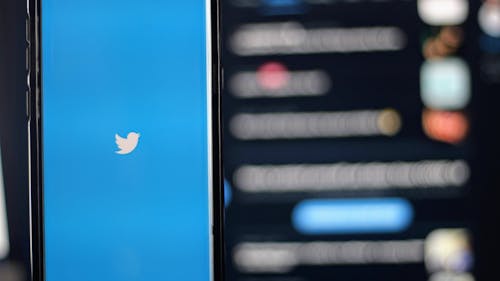How newfound social media CEO Elon Musk is clipping Twitter's wings

American comedian Kathy Griffin may not have been the first person to impersonate Elon Musk on Twitter, but she was certainly the first celebrity to be banned for her mockery of the company’s new CEO.
Griffin is part of a larger trend of high-profile accounts being suspended for impersonating Musk, poking fun at a series of blunders with the social media platform following its acquisition by the multi-billionaire late last month.
Around the time he was revealed to have purchased a controlling $2.9 billion stake in the company, Musk began posting some ideas he’d proposed regarding its operations, including converting its headquarters into a homeless shelter for the San Francisco area.
Now you may be thinking “well, he surely meant that facetiously,” and normally, I’d be inclined to agree with you. But according to Musk himself, the only valid form of sarcasm on Twitter must be expressly labeled as such, as he himself outlined on November 6, by tweeting, "Going forward, any Twitter handles engaging in impersonation without clearly specifying ‘parody’ will be permanently suspended."
This announcement came seemingly as a response to backlash following Musk’s proposed plans for the platform’s paid subscription offering Twitter Blue, including, among other perks, a verification check mark for those willing to pay the premium.
Misinformation has become synonymous with social media. In an article published by Science, it was estimated that Tweets laden with misinformation reached an audience of 1,500 people six times faster than their truthful counterparts.
Twitter’s taken various steps to combat misinformation, with one of those measures being denoting prominent public figures on the platform with blue check marks on their profiles next to their name in an attempt to counter any would-be impersonators looking to spread falsehoods.
But around late October, reports began to surface which said Musk, in a desperate attempt to brace for potential advertiser withdrawal, was mandating his staff to implement some changes to Twitter Blue, which would grant any subscriber the iconic blue verification check mark for their profile.
In addition, Twitter decided to raise the service’s price from $5 a month to $20 a month. But after a public exchange with famed horror novelist Stephen King, the monthly fee was lowered to $8.
Regardless of the cost, with this move, Musk has reduced the platform’s signature identity-checking measure to little more than a blank trophy — a shiny badge, once seen as a sign of status and merit, is now available to anybody with an inferiority complex and $8 to spare a month looking to buy a sense of worth.
This plan has been going about as well as you could expect. Since the changes were implemented (thankfully after the 2022 midterm elections), users quickly went to work creating fake profiles of influential figures and posting all manners of absurdity.
These fake profiles ranged from an imposter Nintendo of America account posting a picture of Mario presenting his middle finger to the camera to one user posing as military arms manufacturer Lockheed Martin announcing its halting of weapons sales to Israel, Saudi Arabia and the U.S. until they were investigated for human rights abuses.
One constant in Musk’s messaging since the announcement of his bid to buy Twitter earlier this year has been a greater emphasis on free speech. On April 26, he tweeted, "The extreme antibody reaction from those who fear free speech says it all," adding in a later tweet, "By 'free speech,' I simply mean that which matches the law.”
With this message, Musk is saying that the only moderation he intends to maintain on the platform is only the extent to which he is required to by the law, which infamously protects hate speech under the First Amendment of the Constitution, despite the fact that Twitter (at least at the time of writing) already has guidelines in place regarding offensive content on its platform. It was reported that the use of racial slurs on the platform jumped nearly 500 percent in the 12 hours following the announcement of Musk's acquisition.
While Twitter has paused its paid verification scheme following the disastrous roll-out, I would not be surprised if it returned in some fashion after Musk believes the news to have died down enough to not cause another public relations nightmare.
It remains to be seen how Musk will balance his free-speech promises and the interest of corporate sponsors, while also managing the ever-prevalent threat of misinformation … But then again, who can worry about other people spreading misinformation on your platform, when you’re too busy posting it yourself?



